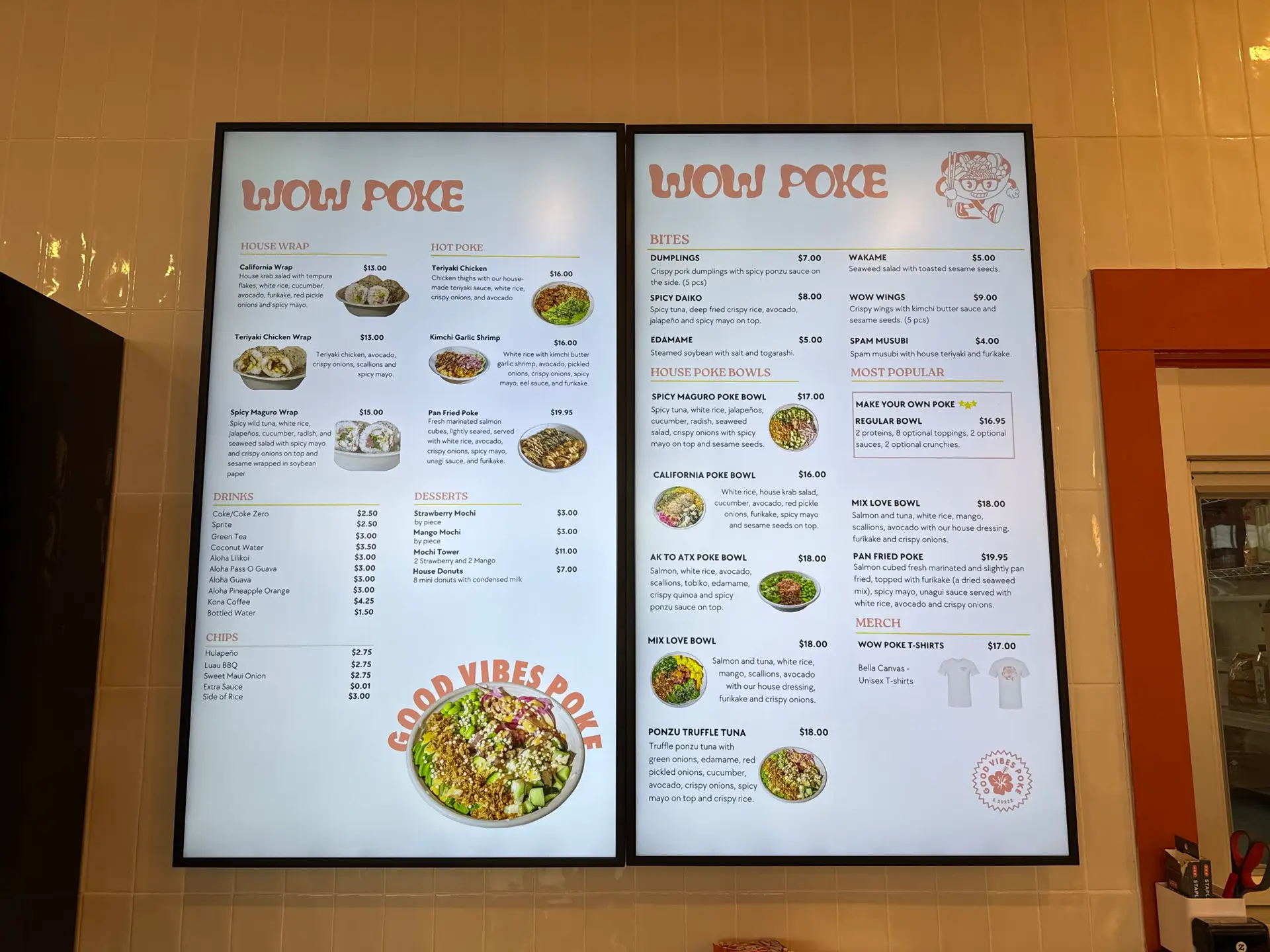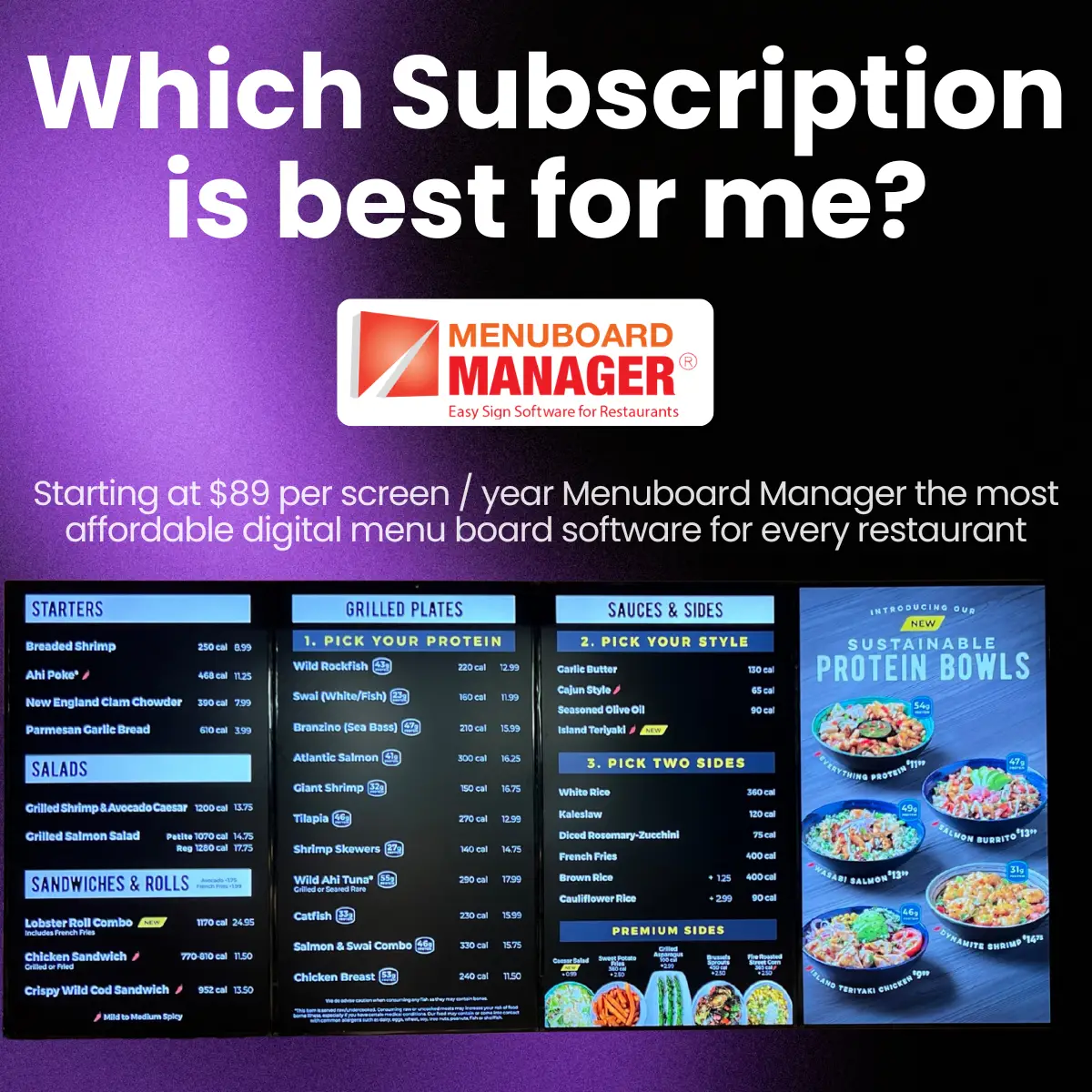Restaurants and establishments dealing in food service continuously seek ways to enhance customer experience and make operations as seamless as possible in this digital age. One such innovation may be adopting friendly user digital menu software. These systems, ranging from simple applications like digital menu board software to very complex ones like interactive digital menus, revolutionize how customers want to experience a menu while benefiting both the business and patrons.
Customizable and Flexible Menus
One prominent feature of digital menu software is customizable digital menus. In traditional printed menu cards, the content cannot be changed and should be updated easily, costing money and time. However, digital menu board software can modify the menu quickly and easily. It can also add new dishes, change prices, and highlight real-time promotions and offers so that customers are constantly updated.
Much more suited for restaurants that frequently update their menu offerings or offer limited-time ideas, this flexibility allows them to try new dishes without commitment to costly menu reprinting for the ability to react dynamically to the market. Moreover, seasonal or holiday specials can always be added to a menu to keep things fresh and exciting for repeat customers.
Efficient Implementation and Updates
Another significant line benefit regarding this area is that user-friendly software provides efficiency in implementation and updates. Traditional menu updates take a lot of time because they must be reprinted and redistributed. In a digital menu, however, Automatic menu updates save much time and effort when keeping the menu up to date. It ensures that locations can be updated simultaneously so that every restaurant will have the same menu with no discrepancies.
Moreover, its simplicity of implementation helps restaurants stay updated with market trends and customers’ tastes and always remain a step ahead in this competitive market. Automating updates minimizes human error: changes are applied accurately and uniformly, which is crucial in preserving brand integrity and customer trust.
Accessibility and Inclusivity
Friendly and approachable digital menu software provides support for a great variety of other accessibility features. It is paramount to create an inclusive menu design for various customers, whether they are people with vision loss or foreign speakers. Digital menus could provide alternatives to text-to-speech options or high-contrast visuals in multiple languages at any given time, which would aid all clients in going through the menu.
This inclusivity enhances the dining experience for all patrons. It broadens its customer base by being more welcoming and accommodating to the restaurant. It gives examples of a few accessible options that mean a commitment to all customers for loyalty and good word-of-mouth.
Additionally, digital menus could be designed to meet accessibility standards under regulations like the Americans with Disabilities Act, making it compliant with the law and contributing to the restaurant’s brand reputation as an inclusive, progressive business.
Data Insights and Analytics
The most significant advantage of digital menu software is that it can provide valuable data insights and analytics. These systems can track consumer interaction with a menu and acquire information about popular items, peak ordering times, and customer preferences. That is valuable information for any restaurant owner or manager when deciding menu offerings, pricing strategies, and marketing campaigns. These insights can model restaurant operations, reducing food wastage and improving profitability.
Such data-driven decisions can increase customer satisfaction and revenue generation. For instance, analysis of top dishes may trigger or influence other functions—inventory management—to ensure that ingredients’ stocking against demand is done correctly sans over-ordering. Analytics can also spot trends and predict future needs so restaurants can proactively change menus and other strategies.
Scalability and Future Readiness
Finally, user-friendly digital menu software has been created with scaling and future readiness in mind. Every growing and expanding restaurant needs a menu system that can seamlessly scale to such growth in the blink of an eye. Digital menu software offers scalability, ease of adding new locations, or even integration with other digital systems, such as point-of-sale or inventory management systems. Digital menu boards for restaurants can be particularly beneficial in this regard.
Moreover, due to advanced technology, one can upgrade and update digital menus to include various features and functions, keeping the restaurant ahead. That means a small restaurant could start with the basic setup and add features to its digital menu as it grows without the extra expenditure of money and the headache of changing the whole system. Future readiness is when the restaurant can take advantage of new technologies and trends, remaining competitive in a constantly evolving market.
Conclusion
User-friendly digital menu software must be considered. It has loads of benefits, such as traditional menus being unable to compete with custom and flexible menus, efficient implementation and updating, accessibility to data insight, and scalability. With the best digital menu board software in place, only those restaurants using interactive digital menus will be well on their way toward high customer satisfaction scores, smoother restaurant Operations, and long-lasting success.
Among the many beneficiaries, one of the leaders in solutions for digital menus is Menuboard Manager. This tool creates relevant, accessible, and dynamic digital menus with its very robust platform. With Menuboard Manager, restaurants can be assured that their businesses will be powered with the latest technology needed to meet today’s and tomorrow’s customer demands. In the competitive food service sector today, staying ahead means embracing innovation. Easy-to-use digital menu software can help restaurants grow—like what Menuboard Manager can offer—to ensure better customer experiences, smoother operations, and increased success.






